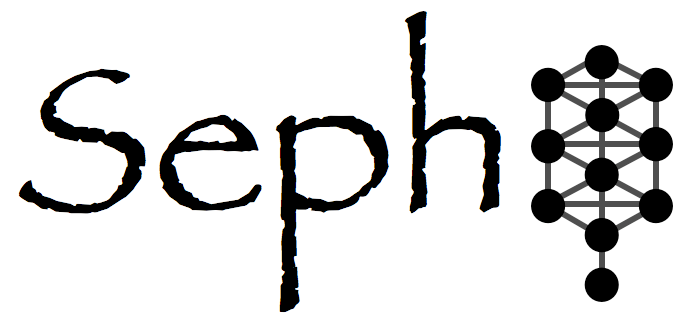Download instructions
Note that Seph has not had an official release yet. The above drops make it possible to try out Seph inbetween releases. All of them have passed testing, but no guarantees are made. If you want to trace what exact commit was used to generate a specific drop of Seph, you can ask the seph script for it's version.
Depending on what system you're on, choose the appropriate download from above. If you want to build Seph yourself you will need at least the Java 7 SDK. If you download one of the binary versions, at least Java 7 SDK is also required.
If you're on windows, the zip version is probably recommended. On a unix system the tar version is recommended.
The jar-version only includes the absolute minimum required for Seph to function. Seph can be run directly from the jar.
Mac and Linux
Unpack the tar file and place it where you want it to live. It's possible to have SEPH_HOME be /usr/local if you're that way inclined. Once you've unpacked Seph and put it where you want it, you can either run it by directly referring to scripts in the bin-directory, or add the bin-directory to your PATH.
Windows
It is possible to run Seph under Windows but since the current development team is exclusively on Mac there are currently no guarantees that it will work correctly.
First, download the zip file and unpack it at the place you want Seph to live. It will make your life easier to set SEPH_HOME to the place where that directory is, but it's not exactly necessary. You need to have at least Java 7 installed, and it's necessary to have JAVA_HOME point at the directory where Java is installed.
When all of that is in place, you need to add %SEPH_HOME%\bin to your PATH. And that is all. You should be able to run seph now.
Jar-file
You can run Seph directly from the jar-file above. To do that, just use the java -jar command and then give it the same options as you would the seph script -- except for the -J, --server and --client options everything should work more or less the same. Hello world with an inline script: java -jar seph.jar -e'"Hello World" println'.
|
